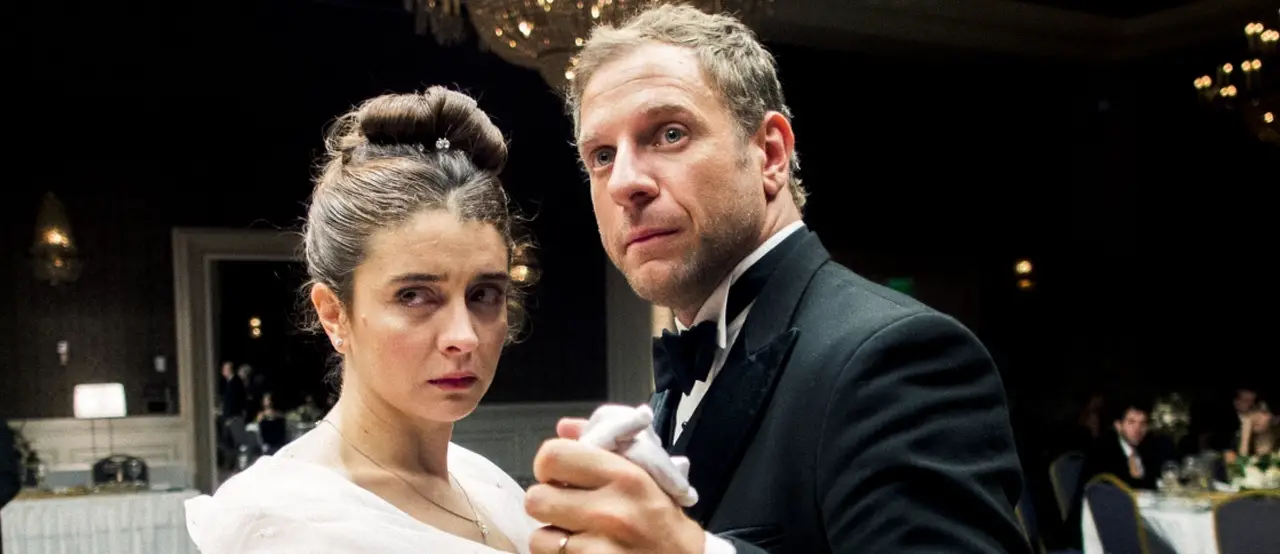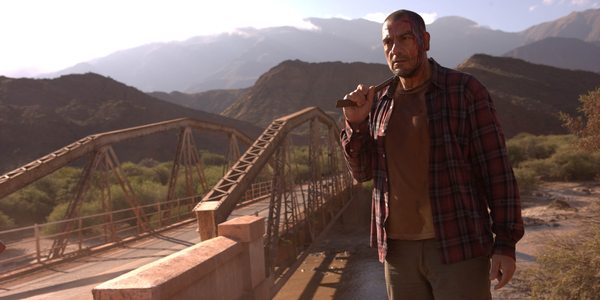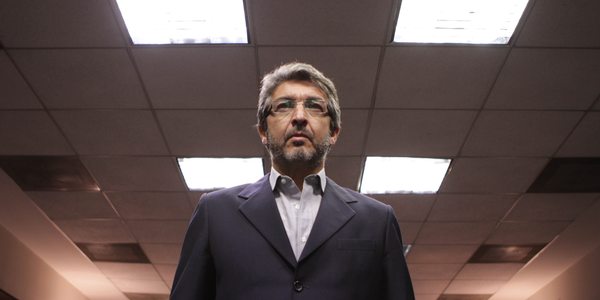WILD TALES: Deliriously Dark and Uproariously Funny

Alistair is a 25 year old writer based in Cambridge.…
Although it may not be for everyone due to its pitch-black tone, Wild Tales is a film that I imagine everybody who sees it can relate to in some way. It is a film about one of the most basic human emotions, one that is rarely the central emotion of any movie: anger. Yet the movie itself never comes across as angry, showing us a wild array of characters falling victim to their angriest impulses whilst never fully sympathizing with them; we may not relate to the stories on screen (and for that, we should be eternally thankful), but we can relate to them giving in to their angry side. In a polite society where we have to keep our emotions suppressed at all times, who hasn’t felt the need to scream out about every little thing that goes wrong? Wild Tales releases the cathartic anger so you don’t have to. It is the cinematic equivalent of a stress ball, even if its winning mix of black comedy, bloody violence and social commentary does get your blood pumping in different ways. It is deliriously dark, but uproariously funny.
A Feel-Good Black Comedy?
The movie consists of six entirely unrelated short stories that are only connected in how they present the different ways people process anger. To many extents, Wild Tales is an anthology film, albeit the first fully coherent one in the history of cinema, thanks in no part to the whole movie being written and directed by Damian Szifron, a director who will no doubt be in demand after this international breakthrough. Yet to say the movie is only coherent in how all the different segments portray the same ugly emotion in different ways does it a vast disservice. This is a movie that is funny first and foremost. It is the rare black comedy that, as dark as its subject matter gets, you never feel bad for laughing at it, even as it is portraying people dying in increasingly horrific ways. Again, this is likely due to the cathartic feeling it elicits in an audience; by pushing the everyday feelings of anger to their most ridiculous extremes, it is sure to help any viewer recognise the silliness of their own angry emotions and laugh them off wholeheartedly.
Furthermore, Szifron refuses to do what other directors would do and tie it all together to make some sort of political statement about how the anger portrayed here is to do with the state of the Argentinian government driving people to insanity (and if he does do this, then I happily declare ignorance of Argentinian politics). This makes it a truly universal film, as with no elements other than a setting and a language that make it specific to its home nation, it can be seen, understood and hopefully loved by audiences willing to seek it out the world over. It is that rare foreign language film that may convert the subtitle-phobic into world cinephiles.

One of the movie’s many strengths is that, although some segments are better than others, there is no weak spot. Each vignette will stand up as a brilliant short film in its own right when divorced from the movie as a whole. My personal highlights were the third and fourth tales, which were the most extreme and the most relatable respectively (and not coincidentally, the longest two segments of the entire movie). The third story stars Leonardo Sbaraglia as a yuppie driver who makes the vital error of verbally abusing a slow driver he overtakes on the Argentinian highway. Miles later, he gets a flat tire and the man he earlier called a redneck parks alongside him to give him hell, which starts hilariously (I’m not going to pretend to be sophisticated about this – seeing a man poo on a car is always funny), before escalating into something far more horrifying and paradoxically even more hilarious.
How is a movie this dark relatable?
However, it was the fourth story that holds the title of my favourite, despite being the least funny of all six tales. Ricardo Darin, star of that other Argentinian Oscar success The Secret in their Eyes, plays a demolitions expert whose own life gets slowly demolished after a parking ticket. Parking outside a shop to pick up his daughter’s birthday cake, his car gets towed despite there being no yellow line outside. His violent outburst at the DMV when going to pay the fine makes national news, which destroys his professional life, yet the fact that he stands up to the faceless bureaucracy instead of paying makes him a national hero. As the longest segment, this is clearly designed as the one that will receive the most sympathy from the audience. Even as a person who doesn’t drive, I can relate to having to pay unnecessary fines for transport.

It is a criminal offence to ride a train without a ticket in England, yet recently when I’ve been running late to the station I’ve boarded without one, in the hopes that I can buy one from a conductor on board. When they don’t show up, I try to buy one from the rail operatives at the exit, so I can leave the station without a criminal record. Recently, they have changed the rule so you can’t buy a ticket at the exit and instead they send a letter ordering you to pay an £80 fine for not buying in advance, which has resulted in almost everybody who gets off at my station having to pay a fine simply for being late to the train.
Even as you try to give them money to pay for the journey you’ve just been on, they refuse to accept it and tell you to wait for the letter instead. Unlike Wild Tales, which doesn’t make any political statement on a similar matter, I at least have the luxury of blaming Margaret Thatcher for privatising the British rail network in the UK so competing rail companies try to squeeze as much money out of their customers as possible. But that is why Damian Szifron is a better writer than I will ever be – he doesn’t alienate audiences by tying it to the faults of one political system, and instead makes it a universal experience that anybody can relate to. Even the DMV employees are portrayed positively. After all, they are just doing their job and are clearly as frustrated as everybody else by having to ruin peoples’ lives day in and day out.
Conclusion
If there is a fault to Wild Tales it is that as good as all the segments are, they don’t really add up to anything. The movie just ends when the last story does, with an admirable refusal to tie the whole thing together. It leaves you walking out of the cinema with a shrug, instead of delivering one final gut-punch that clarifies everything you’ve witnessed before. This is a minor criticism though, as Wild Tales is very likely to remain the funniest comedy I see this year.
Have you seen Wild Tales? Did you think it should have been a bigger contender for foreign-language film at this past year’s awards season?
Wild Tales is out now in the UK and the US. All International release dates can be found here.
(top image source: Warner Bros)
Does content like this matter to you?
Become a Member and support film journalism. Unlock access to all of Film Inquiry`s great articles. Join a community of like-minded readers who are passionate about cinema - get access to our private members Network, give back to independent filmmakers, and more.
Alistair is a 25 year old writer based in Cambridge. He has been writing about film since the start of 2014, and in addition to Film Inquiry, regularly contributes to Gay Essential and The Digital Fix, with additional bylines in Film Stories, the BFI and Vague Visages. Because of his work for Film Inquiry, he is a recognised member of GALECA, the Gay & Lesbian Entertainment Critics' Association.













